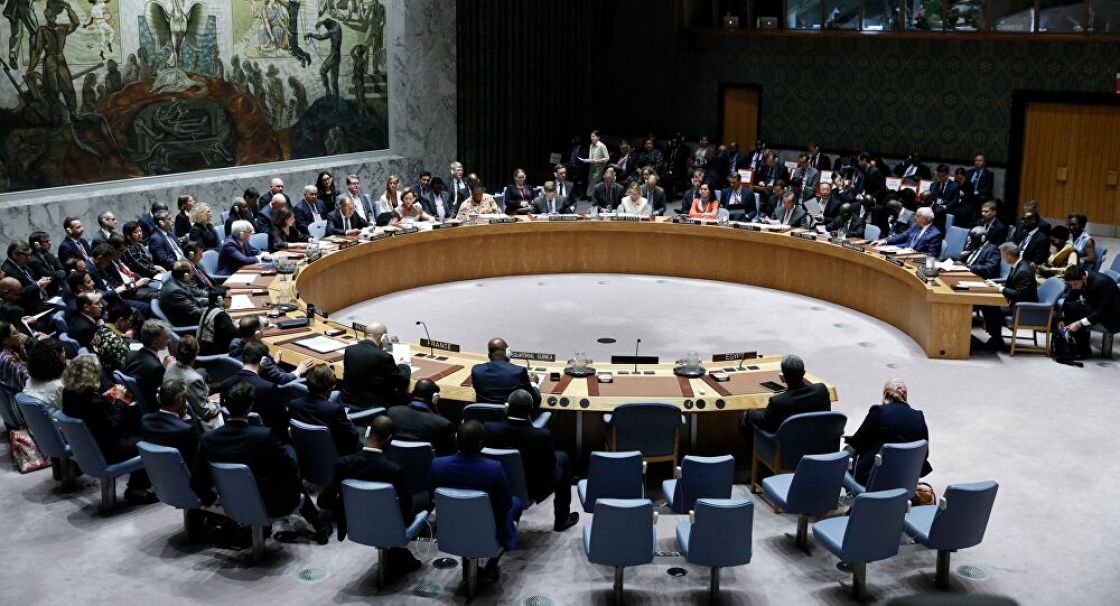- Articles
- Posted
The Difference between the New Aid for Syria Resolution and the Previous Ones
On Friday, July 9, 2021, the UN Security Council adopted unanimously a resolution, UNSC Resolution 2585, on the delivery of humanitarian aid into Syria through border crossings and “to all parts of Syria without discrimination”.
The resolution was proposed by Russia, the US, Ireland, and Norway, which UN Security Council president, Nicolas de Rivière announced was adopted unanimously.
While the initial news in many media outlets focused on reporting that the previous resolution was extended for another year and for Bab al-Hawa border crossing, the new resolution actually included some key differences compared to last year’s resolution.
The text of the new unanimously-adopted resolution, which Kassioun reviewed, included at least two main ideas:
The text of the new unanimously-adopted resolution, which Kassioun reviewed, included at least two main ideas: (1) a greater focus on cross-line aid delivery and facilitating “the provision of humanitarian assistance and COVID-19 vaccinations to all parts of Syria without discrimination”; and (2) highlighting the impact of COVID-19 on Syrians including the socio-economic situation.
While duration of the last resolution was 12 months, the new resolution reduced the duration to 6 months, which can be extended for another 6 months subject and tied to transparent monitoring of the progress of cross-line aid delivery, where it states:
- Decides to extend the decisions in paragraphs 2 and 3 of Security Council resolution 2165 (2014), for a period of six months, that is, until 10 January 2022, only for the border crossing at Bab al-Hawa with an extension of an additional six months, that is, until 10 July 2022, subject to the issuance of the Secretary General’s substantive report, with particular focus on transparency in operations, and progress on cross-line access in meeting humanitarian needs.
It is also worth noting that the new resolution includes the following additions in its preamble:
- [The UN Security Council] Encouraging efforts to improve cross-line deliveries of humanitarian assistance and all relevant parties to further promote, consistent with United Nations assessments of need, unhindered delivery of humanitarian assistance,
- Recalling the need for all parties to respect the relevant provisions of international humanitarian law and the United Nations guiding principles of humanitarian emergency assistance,
- Expressing in this regard grave concern at the impact of the COVID-19 pandemic, recognizing that the pandemic presents a profound challenge to Syria’s health system and humanitarian situation, and recalling the need for full, safe and unhindered humanitarian access, without delay, including for humanitarian personnel and medical personnel, their equipment, transport and supplies in order to facilitate the provision of humanitarian assistance and COVID-19 vaccinations to all parts of Syria without discrimination, as contained in resolution 2565 (2021) [regarding a worldwide ceasefire to facilitate provision of vaccination] and the United Nations Secretary-General’s appeal,
- Recognizing that humanitarian activities are broader than solely addressing the immediate needs of the affected population and should include support to essential services through water, sanitation, health, education, and shelter early recovery projects.
The UN Security Council met one day before the expiration of the previous resolution, UNSC Resolution 2533 (2020).
Furthermore, the resolution included the following additional paragraphs:
- [The UN Security Council] Calls upon all Member States to respond with practical steps to address the urgent needs of the Syrian people in light of the profound socio-economic and humanitarian impact of the COVID-19 pandemic on Syria, as a country in situation of complex humanitarian emergency;
- Welcomes all efforts and initiatives to broaden the humanitarian activities in Syria, including water, sanitation, health, education, and shelter early recovery projects, undertaken by the International Committee of the Red Cross (ICRC) and other organizations, and calls upon other international humanitarian agencies and relevant parties to support them;
Finally, the last paragraph of UNSC Resolution 2585, with regards to the required reporting by the UN Secretary-General, had the following phrasing, which clearly differed from the previous resolution, stated the following:
- Requests the Secretary-General to brief the Council monthly and to provide a report on a regular basis, at least every 60 days, on the implementation of resolutions 2139 (2014), 2165 (2014), 2191 (2014), 2258 (2015), 2332 (2016), 2393 (2017), 2401 (2018), 2449 (2018), 2504 (2020), 2533 (2020) and this resolution and on compliance by all relevant parties in Syria and further requests the Secretary-General to include in his reports overall trends in United Nations cross-line operations, in particular on the implementation of the above‑mentioned activities on improving all modalities of humanitarian deliveries inside Syria and early recovery projects, and detailed information on the humanitarian assistance delivered through United Nations humanitarian cross-border operations, including the distribution mechanism, the number of beneficiaries, operating partners, locations of aid deliveries at district-level and the volume and nature of items delivered.
Relatedly, the White House revealed that US president, Joe Biden, and his Russian counterpart, president Vladimir Putin, recommended during a phone call on Friday evening the expansion of the UN mechanism for aid delivery to Syria.
The statement also noted that, among other issues that the two presidents discussed, they praised the combined efforts of the US-Russia joint working team following the summit between them, which led to the unanimous renewal of the cross-border humanitarian aid to Syria in the UN Security Council on Friday.
Source: Agencies + Kassioun


